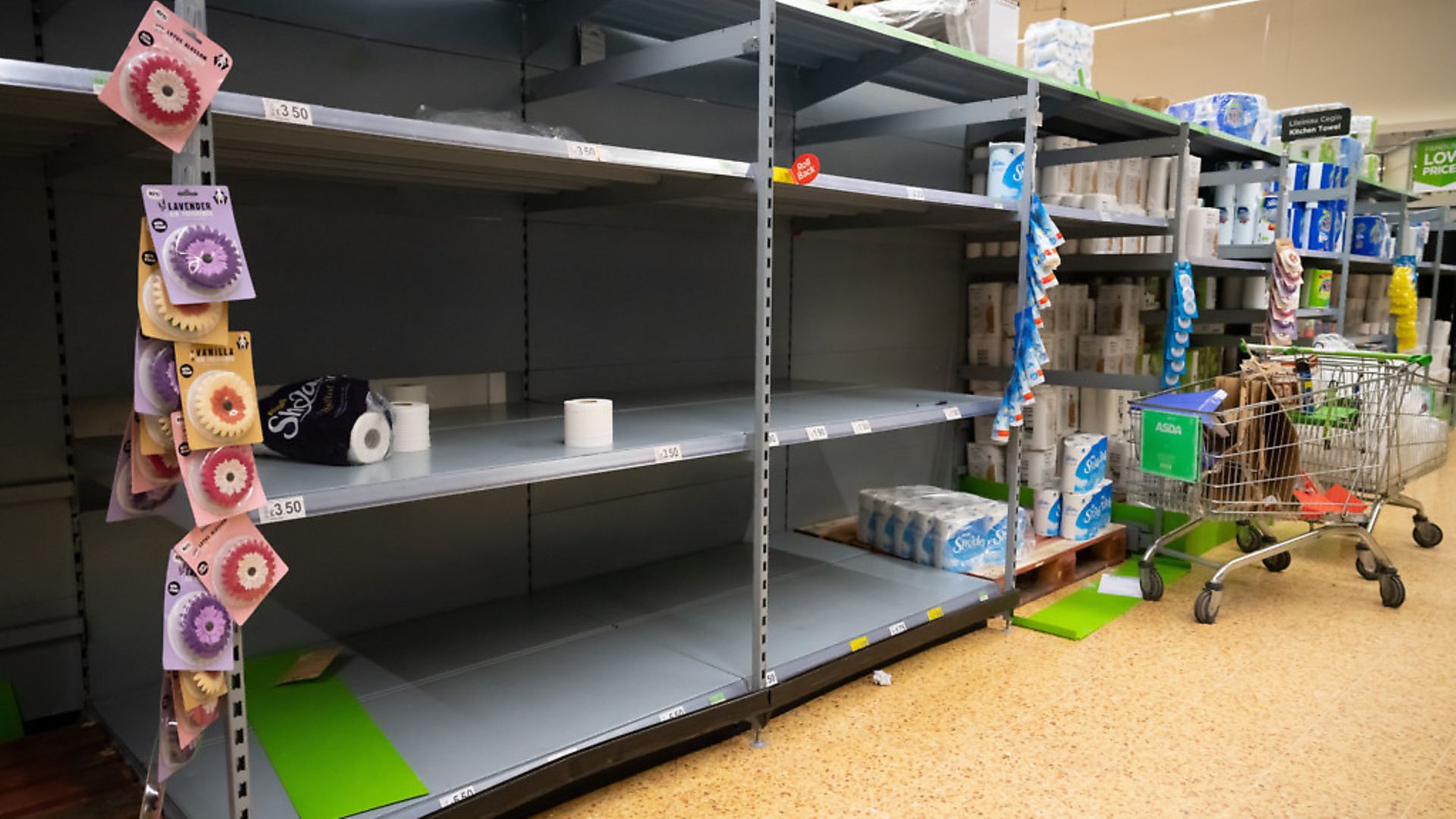
The coronavirus has exposed our vulnerability like nothing else we have experienced, says WILL SELF
Wolfgang Schivelbusch, the great scholar of 19th century industrialisation and its psychological sequels, defines ‘the falling height’ of technological constructs thus: ‘The technology has created an artificial environment which people become used to as second nature. If the technological base collapses, the feeling of habituation and security collapses with it.’ This is, of course, what’s happening all over Europe and America right now: the general population is becoming increasingly dizzy – gripped by an awful sense of vertigo as we stare down into the many local voids that are opening up between our feet; ragged tears in our formerly secure environments, through which we can view the nauseating convulsions of unmediated chaos.
Schivelbusch was writing with special reference to railways and the accidents which beset them. Initially, people were highly dubious of trains – and rightly so, given their poor safety record in the first decades after Stephenson’s Rocket. But in time, the assemblage of trains, their terminuses and the entire interconnected infrastructure came to constitute just such an ‘artificial environment’. Schivelbusch’s point is: the more encompassing and seemingly secure this environment, the greater the ‘fall’ when the crash comes: one minute you’re clunkily-clunking along the Brighton line, reading the Times’ editorial, eating your kippers and drinking your tea – then the very next you’re lying on an embankment, hideously maimed yourself, and staring at the freshly disarticulated body parts strewn about you on the sward.
The ‘fall’ also constitutes – in Freudian terms – a return of the fears you repressed in order to sit there, reading the opinions of some cosseted hack about the big bad world, while within inches of your most vulnerable portions, steel wheels and steel tracks gnashed and clashed together. But while the technological construct of the railway system is fairly obvious, the ones that underpin our quotidian lives in the West have become pretty much invisible to us. Yes, of course we understand the vast quantities of resources and labour – let alone technology – that mean another pallet-load of toilet paper is ordered the second we take the last six-pack off the supermarket shelf, but that doesn’t mean we recall them to mind each time we reach, any more than we think of the sewer systems sneaking away beneath our feet when we stand up preparatory to wiping.
It’s worth considering, as well, that late capitalism itself constitutes a technological environment: high-frequency computerised trading is at once the most salient aspect of this, and its most occult element – sending algorithmic tendrils deep into our social and psychological vitals. Spooked computers dump stock into a terminal moraine: the glacial till comprised by all those moribund investments. You don’t have to be a Marxist to understand that the commodity itself exists only in relation to a technological environment – one itself defined, in large part, by transportation systems. Wensleydale cheese is just ‘cheese’ in Wensleydale. Moreover, the commoditisation of space, place, and even the human individual that’s predicated on the technological environment of capitalism necessarily falls apart once it becomes impossible to sell cheese at premium prices.
So, the machine stops and the bit becomes impossibly rare – or, as Cyril Connolly more sonorously put it, meditating on the war clouds massed overhead in 1942; ‘It is closing time in the gardens of the West, from now on an artist will be judged only by the resonance of his solitude, or the quality of his despair.’And not just the artist – because now all and sundry will be required to subject themselves to the sort of isolation formerly only required by creative workers, while as for the quality of their despair… Well, as Comrade Stalin so perceptively observed, ‘Quantity has a quality all its own’.
All of which is by way of saying: we’re falling from a very great height indeed – falling as Alice does: at once precipitately, and with sufficient leisure to observe the destocked shelves we fall past: marmalade? Gone. Toilet paper? Gone. And what will we find at the bottom? No Wonderland – that’s for sure, and I’ve grave doubts there’ll be anything much to cushion our fall, either. Our governments have dinned into us the virtues of our technologies – and we’ve been willing accomplices of this acculturation. Now, following a Brexit campaign that was predicated in large part on a back-to-the Blitz-in-order-to-reach-the-future spirit, the government’s calls to ‘keep calm and carry on’ will doubtless rise to a shrieking crescendo. It’s worth bearing in mind that the average British family had to get by on two ounces of cheese a week in 1942 – and there was no choice between Wensleydale and Stinking Bishop. As for toilet paper, that wasn’t on the ration at all. Why? Well, our parents, grandparents and great grandparents were rather more accustomed to improvising than we are. Indeed, the standard ‘shiny’ toilet papers available right up until the 1980s were about as absorbent as the tracing variety. The last places they were still in use were public toilets – and the ones on trains.
Warning: Illegal string offset 'link_id' in /mnt/storage/stage/www/wp-includes/bookmark.php on line 357
Notice: Trying to get property 'link_id' of non-object in /mnt/storage/stage/www/wp-includes/bookmark.php on line 37







